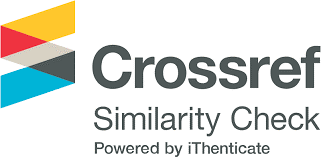Electronic Load for Parameter Characterization in Equivalent Circuit Models of Lithium-Ion Batteries
DOI:
https://doi.org/10.18618/REP.e202521Keywords:
Electronic Load, Parameter Characterization, Equivalent Circuit Models, State of Charge, Extended Kalman FilterAbstract
The applications and implemented volume of lithium-ion batteries have been gaining momentum each year. Aiming to contribute to the development of research in this area, this paper presents the design and implementation of an electronic load focused on characterizing parameters inherent to equivalent circuit models (ECM). ECMs are commonly applied for estimating the State of Charge (SoC), State of Health (SoH), and Remaining Useful Life (RUL) of lithium batteries. In this paper, an electrical design of an electronic load was implemented and validated through laboratory instrumentation to obtain characteristic data from a lithium titanate cell. The data from the tests performed on the cell were used as input for a SoC estimation algorithm based on the Extended Kalman Filter (EKF) to help corroborate the prototype's performance. The results comprise the performance of the electronic load, the results associated with the parameterization tests of the lithium cells, and the results obtained for the cell’s SoC estimation using the EKF.
Downloads
References
K. Vigerstol, “A Review of the Suitability of Lithium Battery Technology in ICT Energy Infrastructure,” IEEE International Telecommunications Energy Conference. Oct. 2017. DOI: https://doi.org/10.1109/INTLEC.2017.8214144
S. Kempston, S. R. Coles, F. Dahlmann, and K. Kirwan, "UK electric vehicle battery supply chain sustainability: A systematic review," Renewable and Sustainable Energy Reviews. Jan. 2025. DOI: https://doi.org/10.1016/j.rser.2024.115216
D. A. Cantane, O. H. Ando Junior, and M. B. Hamerschmidt, “Tecnologias de Armazenamento de Energia Aplicadas ao Setor Elétrico Brasileiro,” Editora Scienza, Vol.1, 2020. DOI: https://doi.org/10.26626/978-65-5668-013-2.2020B0001
Z. Tao, Z. Zhao, C. Wang, L. Huang, H. Jie, H. Li, Q. Hao, Y. Zhou, and K. Y. See, "State of charge estimation of lithium batteries: Review for equivalent circuit model methods," Measurement. Aug. 2024. DOI: https://doi.org/10.1016/j.measurement.2024.115148
H. Rahimi-Eichi, U. Ojha, F. Baronti, and M. Chow, “Battery Management System: An Overview of Its Application in the Smart Grid and Electric Vehicles,” IEEE Industrial Electronics Magazine, pp. 4-16. Jun. 2013. DOI: https://doi.org/10.1109/MIE.2013.2250351
G. L. Plett, “Battery Management Systems: Battery Modeling,” Volume I. Artech House, pp. 0-323, 2015.
M. Chen, and G. A. Rincón-Mora, “Accurate Electrical Battery Model Capable of Predicting Runtime and I–V Performance,” IEEE Transactions on Energy Conversion, Vol. 21, no. 2, pp. 504-511, Jun. 2006. DOI: https://doi.org/10.1109/TEC.2006.874229
S. Bampi, G.Waltrich and A. Vaccari, “Real-Time State-of-Charge Estimation in Lithium-Ion Batteries Using Extended Kalman Filter,” IEEE 8th Southern Power Electronics Conference and 17th Brazilian Power Electronics Conference (SPEC/COBEP), 2023. DOI: https://doi.org/10.1109/SPEC56436.2023.10408586
D. Larson, “How to Design an Optimal Electronic Load for High-Current, Low Voltage Power Supplies (Part 1, 2, 3),” Electronic Design, Apr. 2020.
E. Duran, M. Piliougine, M. Sidrach-de-Cardona, J. Galan, and J. M. Andujar, “Different methods to obtain the I–V curve of PV modules: A review,” 33rd IEEE Photovolatic Specialists Conference, 2008. DOI: https://doi.org/10.1109/PVSC.2008.4922578
D. C. Martins, and I. Barbi, “Conversores CC-CC Básicos Não Isolados,” 4ª ed. Florianópolis, 2011.
M. Polasek, and M. Danko, "Testing of batteries used in electric cars," ELEKTRO. Krakow, Poland. 2022. DOI: https://doi.org/10.1109/ELEKTRO53996.2022.9803725
E. Vergori, F. Mocera, and A. Somà,"Battery modeling and simulation using a programmable testing equipment," 9th Computer Science and Electronic Engineering (CEEC), 2017. DOI: https://doi.org/10.1109/CEEC.2017.8101618
J. Fan, W. He, C. Hendricks, M. Pecht, and K. Yung, "A practical design of reliability and performance test for portable lithium-ion batteries," IEEE International Conference on Information and Automation, 2015. DOI: https://doi.org/10.1109/ICInfA.2015.7279274
A. Marongiu, A. Damiano, and M. Heuer, "Experimental analysis of lithium iron phosphate battery performances," IEEE International Symposium on Industrial Electronics, 2010. DOI: https://doi.org/10.1109/ISIE.2010.5637749
WinAck, "Battery Cycler - Battery Module Test Equipment," Xiamen Winack Battery Technology CO. LTD, 2024.
X. Zeng, L. Chen, X. Xia, Y. Sun, and J. Yue, "Modeling of temperature characteristics of lithium-ion batteries considering the state dependency and its robust estimation of internal temperature," Journal of Power Sources. Jan. 2025. DOI: https://doi.org/10.1016/j.jpowsour.2025.236432
Q. Li, R. Li, K. Ji, and W. Dai, “Kalman Filter and Its Application,” 8th International Conference on Intelligent Networks and Intelligent Systems, Nov. 2015. DOI: https://doi.org/10.1109/ICINIS.2015.35
D. C. Martins, “Eletrônica de Potência Transistores de Potência,” Ed. of the author. Florianópolis, 2018..
T. iDevices, "Produtos iDevices," URL: https://idevices.com.br/contato/. Jan. 2025.
G. A. P. Rao, and SR S. Kumar, “A Review of Integrated Battery Thermal Management Systems for Lithium-Ion Batteries of Electric Vehicles,” e-Prime - Advances in Electrical Engineering, Electronics and Energy, 2024.
A. Belgibayeva, A. Rakhmetova, M. Rakhatkyzy, M. Kairova, I. Mukushev, N. Issatayev, G. Kalimuldina, A. Nurpeissova, Y. Sun, and Z. Bakenov, “Lithium-ion batteries for low-temperature applications: Limiting factors and solutions,” Journal of Power Sources, 2023. DOI: https://doi.org/10.1016/j.jpowsour.2022.232550
Downloads
Published
How to Cite
Issue
Section
License
Copyright (c) 2025 Suelen Bampi, Gierri Waltrich, Anderson Vaccari

This work is licensed under a Creative Commons Attribution 4.0 International License.















